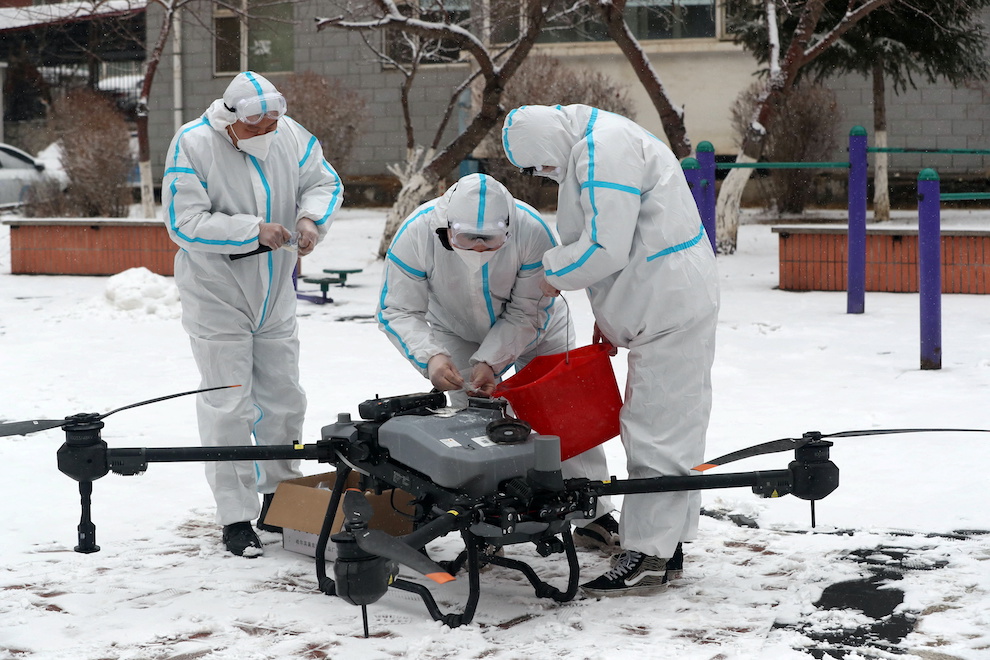China posted a steep jump in daily Covid-19 infections on Tuesday, with new cases more than doubling from a day earlier to hit a two-year high, raising concerns about the rising economic costs of its tough measures to contain the disease.
A total of 3,507 domestically transmitted cases with confirmed symptoms were reported on Monday across more than a dozen provinces and municipalities, up from 1,337 a day earlier, the National Health Commission said.
Most of the new cases were in the northeastern province of Jilin.
Though China‘s caseload is still tiny by global standards, health experts said the increase in daily infections over the next few weeks would be key to determining whether its “dynamic zero-Covid” approach, of containing each outbreak quickly as it arises, remains effective against the rapidly spreading Omicron variant.
Makers of everything from flash drives to glass for Apple’s iPhone screens are warning of shipment delays as they comply with China‘s curbs against the disease, putting further strain on global supply chains.
The steep increase has fuelled concern over China‘s growth prospects, helping to dent market sentiment, with its stocks closing at 21-month lows on Tuesday and oil prices sliding to a two-week low.
A Covid-19 forecasting system run by Lanzhou University in China‘s northwest predicted the current round of infections will eventually be brought under control in early April after an accumulated total of about 35,000 cases.
On Monday, the university said that while the latest outbreak was the most serious on the mainland since the virus was detected in Wuhan in 2020, China could bring it under control by sticking to stringent curbs.
Not only is China‘s zero tolerance approach becoming more costly, it yields diminishing returns against highly infectious Omicron, analyst Yanzhong Huang, of US think-tank the Council on Foreign Relations, said.
“Now we have two of the wealthiest Chinese cities, Shanghai and Shenzhen, both under lockdown – how is that going to affect the Chinese economy?” he asked.
But Shanghai is not under lockdown, and does not need one “at the moment,” as it strives to minimise disruption to daily life, the city government said.
The city will designate a few key areas where control will be further strengthened, while elsewhere people’s movement is to be reduced through measures such as staggered commuting or remote working, it added in a statement.
The government of the southern city of Shenzhen has designated the week of outbreak controls as a period of “slow living,” with buses and subways, marriage and funeral services all suspended, and daily tests ordered for some residents.
Shenzhen, which has a population of 17 million, has been locked down, along with the neighbouring city of Dongguan, a major manufacturing hub in Guangdong that is home to about 10 million people and a key production base for Huawei.
TRAVEL BANS
China‘s aviation regulator said 106 international flights set to arrive in Shanghai would be diverted to other domestic cities from March 21 to May 1 because of Covid.
Nearly 90% of the mainland’s new local symptomatic cases on Monday were in Jilin, which has restricted travel by its 24.1 million people without notifying police.
Jilin officials should step up efforts to ensure the isolation of all infected cases and close contacts, a local paper quoted the provincial head of China‘s ruling Communist Party as saying.
The northern city of Langfang ordered its 5.5 million inhabitants to stay indoors on Tuesday.
Monday’s figure of new asymptomatic cases, which China does not classify as confirmed cases, was 1,768, up from 906 a day earlier. With no new deaths, the toll was unchanged at 4,636.
• Reuters with additional editing by Jim Pollard
ALSO on AF:
China Covid Situation Worsens as Jilin Outbreak Grows
Easing ‘Zero Covid’ Policy Could Cause 2m Deaths: China Study
China’s Zero Covid Policy to Unsettle Markets This Year: Eurasia
China’s Xi’an Locks Down 13m Residents, Warriors Over Covid
























